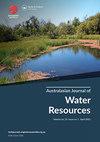提高水的价值:需要从其他地方开始
IF 2.2
Q2 WATER RESOURCES
引用次数: 0
摘要
最近,人们一直担心社会分裂,尤其是在西方民主国家,对主流政治进程的信任和对民粹主义政治家的支持表明,社会上的某些部分感到孤立和被剥夺了权力。这种现象也体现在日益棘手的环境政策和管理问题上(Newig和Rose 2020)。对气候变化的反应一直不一致,因为当许多机构目前只组织起来以顺序的方式一次处理一个问题时,社会需要系统方法。水资源管理的要求在这里最好地说明了采取综合办法的必要性。在水循环中,有必要根据每个问题与另一个组成部分的关系来定义每个问题。每件事都是相互联系的。上游土地利用和管理实践不仅影响下游水流,还影响水质(Fenemor et al. 2011a)。如果不了解地下水与地表水的关系,管理地下水就没有什么意义(Abbott et al. 2019;新西兰水文学会(2021)。在干旱期间,如果集水区水坝管理不善,例如溢洪道堵塞或被忽视,它们可能会在强降雨的压力下失效,并加剧洪水状况(Tingey-Holyoak 2014;Pisaniello and Tingey-Holyoak 2017;贝克尔2021)。当管理城市用水时,没有参考其来源的集水区或接收水环境,就会出现问题(Vörösmarty等人,2010年)。水的管理方式也对食品生产、工业加工、娱乐和文化等多种用途和价值产生明显影响。本期特刊讨论了一系列与经济、环境和社会文化障碍有关的政策问题,以及实现更可持续的水资源管理和规划的机会。关于市场的论文包括以超越流行方法的方式调查水交易,以考虑社会经济,生态和文化需求,涵盖澳大利亚灌溉者对水的价值的决定因素(Haensch 2022),以及水交易是否是aotearoa -新西兰的可行选择(Booker et al., 2022)。专注于水规划中的公平和治理的论文考虑了水规划的社会正义影响(Brown et al. 2022;O 'Donnell et al., 2022)以及改善利益相关者参与的必要性(Broderick and McFarlane et al. 2022)。论文还考虑了协作方法的必要性,包括我们如何为新西兰土著人民设计更全面的框架(Robson-Williams, Painter, and Kirk 2022),过去的教训如何为未来提供信息并帮助设计改进的决策框架(Harcourt, Robson-Williams, and Tamepo 2022),以及中介机构如何在这一过程中提供帮助(Kirk et al. 2022)。这些论文的核心论点是,水支撑着地球和生活在地球上的人类的福祉,并在灵性方面发挥着关键作用(Caron等人,2021;Cooper and Crase 2016)。我们如何管理水循环是我们社会在生理、心理和精神上运作良好的直接指标,也是人类生态进化的重要基础(Abbott et al. 2019;Fenemor et al. 2011)。这篇社论通过考虑我们通过水所满足的需求修正范围(Syme et al. 2008)的视角来分享什么。本特刊中的论文链接随后被制作出来,并为我们如何在未来做得更好提供了经验教训。本文章由计算机程序翻译,如有差异,请以英文原文为准。
Enhancing the value of water: the need to start from somewhere else
Recently, there has been concern about social fragmentation, especially in western democracies, where trust in mainstream political processes and support of populist politicians has revealed that sections of the community feel isolated and disempowered. This phenomenon is also exemplified in the increasingly troublesome issues of environmental policy and management (Newig and Rose 2020). Responses to climate change have been inconsistent as systems approaches are required from societies when many institutions are currently organised only to deal with problems one at a time and in a sequential manner. The need for an integrated approach is best illustrated here by the requirements of water resources management. In the water cycle, there is an imperative to define each issue in terms of its relationship to another component. Everything is related to everything else. Upstream land use and management practices not only affect downstream water flows but also water quality (Fenemor et al. 2011a). There is little point in managing groundwater without understanding its relationship to surface water (Abbott et al. 2019; NZ Hydrological Society 2021). When catchment dams are poorly managed during drought, such as through spillway blocking or neglect, they can then fail under pressure from intense rain and exacerbate flood conditions (Tingey-Holyoak 2014; Pisaniello and Tingey-Holyoak 2017; Becker 2021). Problems occur when urban water is managed without reference to the catchments it comes from, or the receiving water environment (Vörösmarty et al. 2010). The way water is managed also has an obvious effect on uses and values as diverse as food production, industrial processing, recreation, and culture. This Special Issue addresses a range of policy issues pertaining to the economic, environmental, and sociocultural barriers and opportunities for more sustainable water management and planning. Papers on markets including investigating water trading in ways that go beyond popular approaches to consider the socioeconomic, ecological, and cultural needs, covering determinants of irrigators’ valuing of water in Australia (Haensch 2022), and whether water trading is a viable option for Aotearoa-New Zealand (Booker et al., 2022). Papers focused on equity and governance in water planning consider social justice implications of water planning (Brown et al. 2022; O’Donnell et al., 2022) and the need for improved stakeholder engagement (Broderick and McFarlane et al. 2022). Papers also consider the need for collaborative approaches, including how we design more holistic frameworks for New Zealand’s indigenous people (Robson-Williams, Painter, and Kirk 2022), how lessons from the past can inform the future and help design improved decisionmaking frameworks (Harcourt, Robson-Williams, and Tamepo 2022), and how intermediaries may assist in this process (Kirk et al. 2022). At the centre of these papers is the thesis that water underpins the wellbeing of the planet and the humans that live on it and has a critical role in spirituality (Caron et al. 2021; Cooper and Crase 2016). How well we manage the water cycle is a direct indicator of how well our societies are physically, mentally, and spiritually functioning and is a significant basis on which our human ecology will evolve (Abbott et al. 2019; Fenemor et al. 2011a). This editorial proceeds by considering what it is we are sharing through the lens of the Modified Sphere of Needs met by Water (Syme et al. 2008). Links to the papers in this Special Issue are then made and lessons for how we might do better in the future are derived.
求助全文
通过发布文献求助,成功后即可免费获取论文全文。
去求助
来源期刊

Australasian Journal of Water Resources
WATER RESOURCES-
CiteScore
5.10
自引率
21.90%
发文量
25
期刊介绍:
The Australasian Journal of Water Resources ( AJWR) is a multi-disciplinary regional journal dedicated to scholarship, professional practice and discussion on water resources planning, management and policy. Its primary geographic focus is on Australia, New Zealand and the Pacific Islands. Papers from outside this region will also be welcomed if they contribute to an understanding of water resources issues in the region. Such contributions could be due to innovations applicable to the Australasian water community, or where clear linkages between studies in other parts of the world are linked to important issues or water planning, management, development and policy challenges in Australasia. These could include papers on global issues where Australasian impacts are clearly identified.
 求助内容:
求助内容: 应助结果提醒方式:
应助结果提醒方式:


